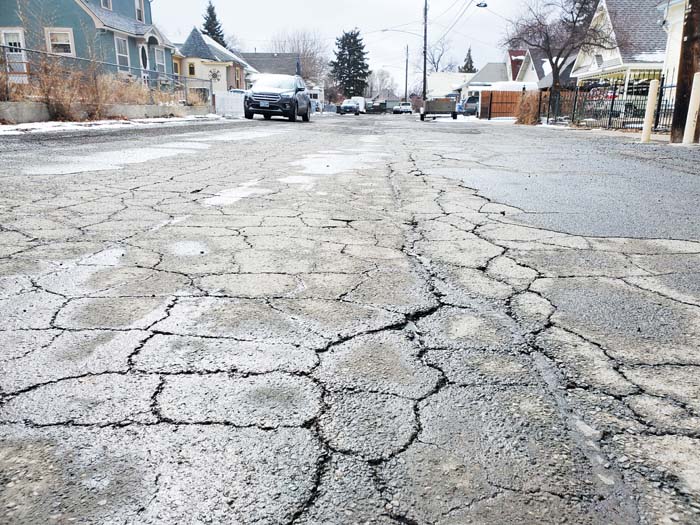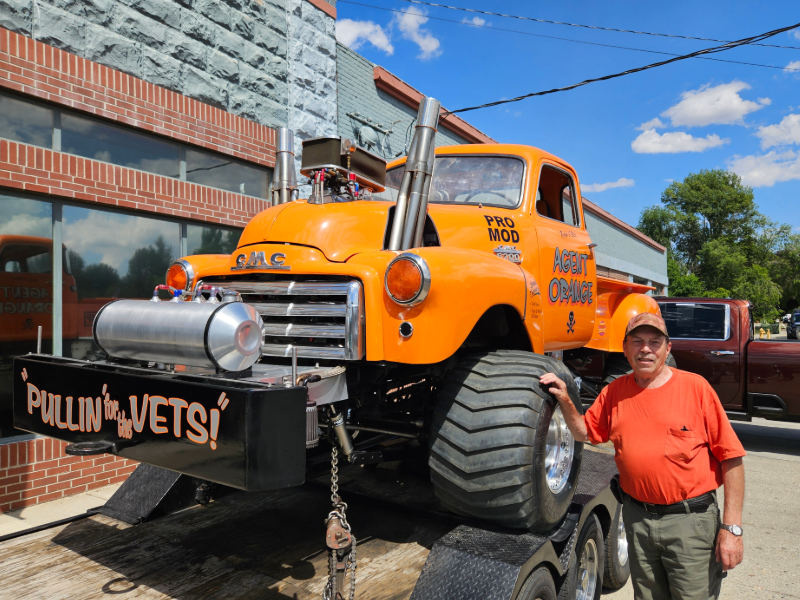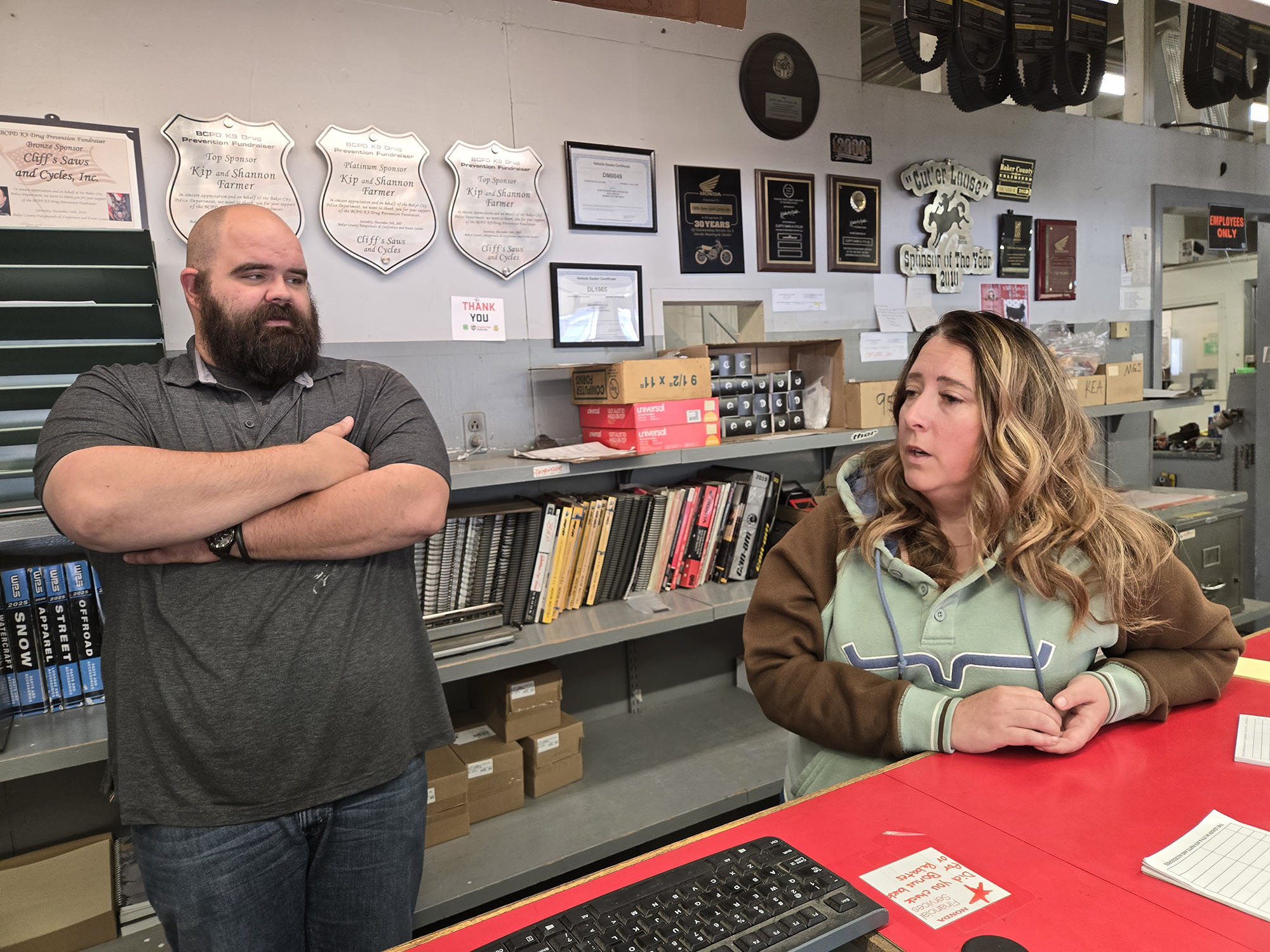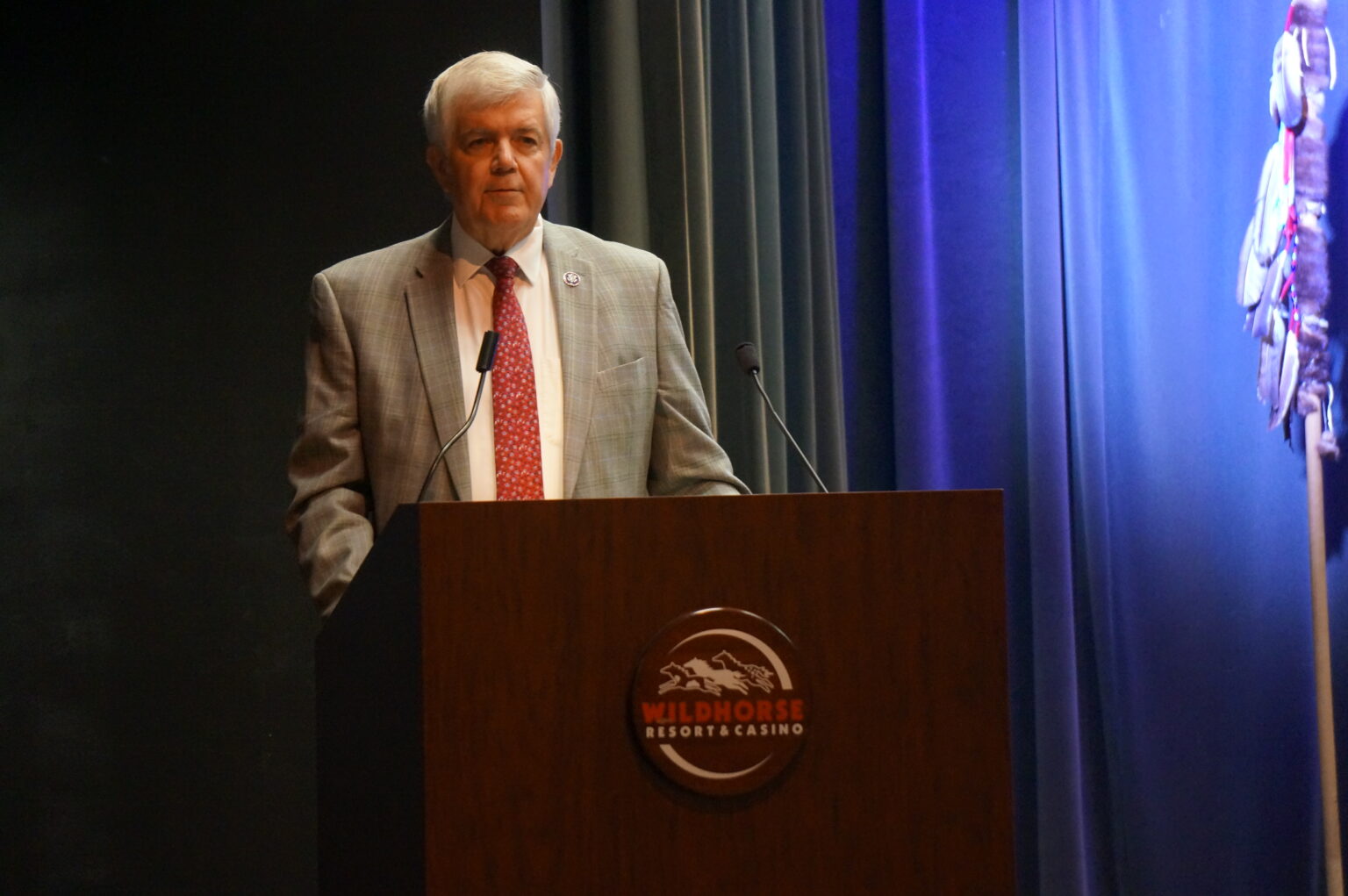EDITORIAL: Time’s not right to ask voters for fuels tax, but council shouldn’t drop the idea
Published 7:50 am Wednesday, August 14, 2024

- Baker City's overall street condition has deteriorated considerably over the past two decades.
The Baker City Council made a pragmatic decision Aug. 13 in deciding not to put a local motor vehicle fuels tax on the Nov. 5 ballot.
Trending
It seems unlikely that city voters would approve such a measure this fall, whether the tax was 3, 4 or 5 cents per gallon, amounts that councilors have discussed.
City Manager Barry Murphy acknowledged this. He recommended councilors hold off on taking a gas tax measure to voters. Councilors voted 5-1 to do so.
“Inflation and high prices continue to hurt City residents, and the City has also raised rates in several areas already,” Murphy wrote in a staff report to councilors for their Aug. 13 meeting.
Trending
The city imposed a $10 monthly public safety fee on June 1 ($20 for businesses). An ordinance requires the city use the money for the police and fire departments.
The council also boosted water rates by 4.3% starting July 1, and boosted a related fee by 2%.
In the May primary election, city voters quite clearly expressed their feelings about taking on an additional expense, when they rejected, by 61% to 39%, a 5-year property tax levy that also would have bolstered the police and fire departments.
And although Baker County’s gas prices have been well below the Oregon average for much of 2024 — sixth-lowest among the state’s 36 counties as of Aug. 14 — there likely isn’t enough support among voters to pass a fuels tax measure any time soon.
But the fuels tax is worth further consideration from councilors, as Councilor Larry Pearson, who cast the only vote in favor of putting a tax on the Nov. 5 ballot, suggested.
The decision, in the end, belongs to voters.
Councilors can choose to put a tax on the ballot, but unlike the public safety fee, councilors can’t enact a fuels tax on their own (nor can they approve a property tax levy).
If voters approved a fuels tax, the city could use the money only for street projects, such as chip sealing and repaving.
A fuels tax would have a tangible benefit to Baker City’s streets.
Although the budget for street maintenance has been relatively steady over the past couple decades, costs, including for materials such as asphalt, have increased. There are two main sources of revenue — about $770,000 per year in property taxes, and about $800,000 per year in state gas tax revenue.
But because the city hasn’t been able to keep pace with inflation, the general condition of streets has deteriorated considerably. From 2006-22, the percentage of city streets rated as either very good or good dropped from 87% to 42%. The percentage of streets rated as fair rose from 26% to 48.4%.
But those statistics don’t tell the complete story.
As streets degrade, the cost to repair them rises significantly. A street in good or very good condition can be maintained with occasional chip seals and fog seals. But once a street deteriorates to poor condition, it typically requires repaving, which can cost more than 10 times as much as chip sealing or fog sealing, according to the city’s pavement management report.
The bottom line is that deferring maintenance results in two things the city, and drivers, want to avoid — bumpier streets, and bigger bills to fix them.
The biggest advantage to a fuels tax is that, unlike the public safety fee and property taxes, it is a financial burden that city residents don’t bear alone. Travelers and visitors would also pay a local fuel tax, and thus contribute to smoothing city streets, an improvement they probably won’t ever benefit from.
A fuels tax wouldn’t magically solve the city’s street maintenance problem, to be sure.
But based on fuel sales statistics from the Oregon Department of Transportation, a tax on gasoline and diesel could yield from $214,000 to $717,000 annually, depending on whether the tax rate was 3, 4 or 5 cents per gallon.
Pearson cited the street situation when he supported putting a fuels tax on the ballot.
“We need to get going on it because (the streets) are continually declining,” Pearson said during the council’s July 23 meeting. “We need to reverse that trend.”
Whether a majority of voters believe a new tax is a good way to start accomplishing that goal is uncertain.
But the city council should give serious consideration during 2025 to putting the matter before voters.









